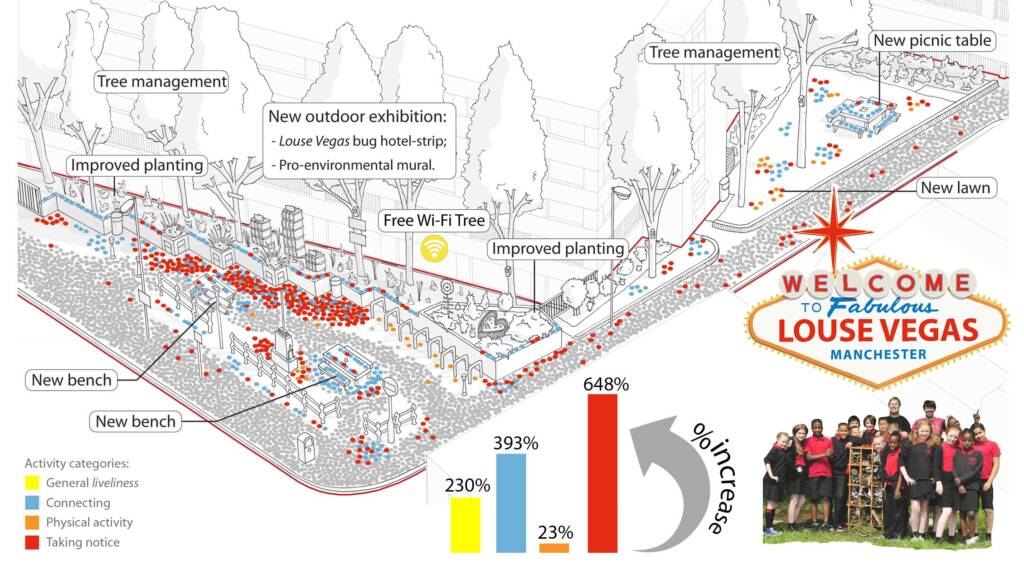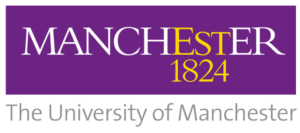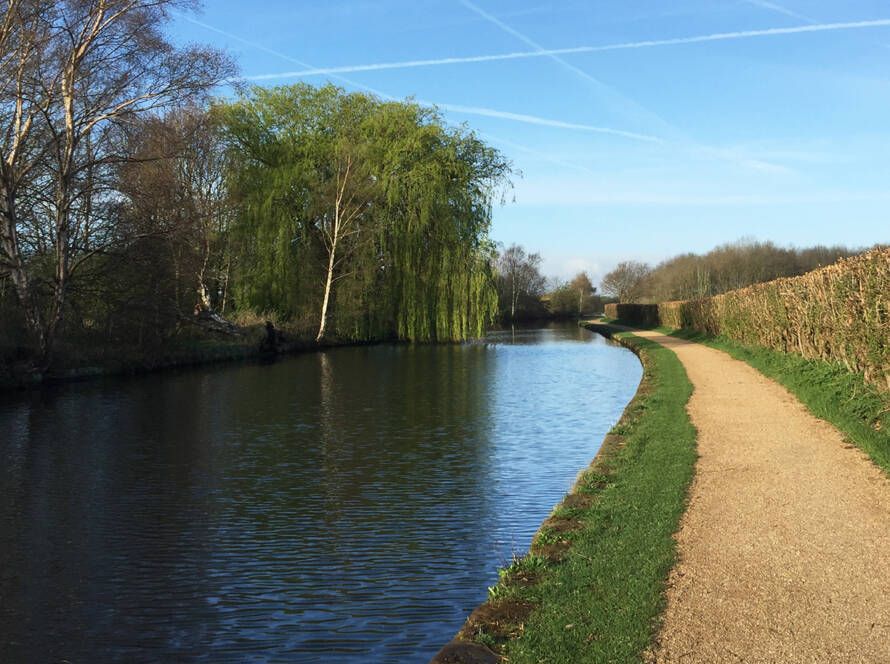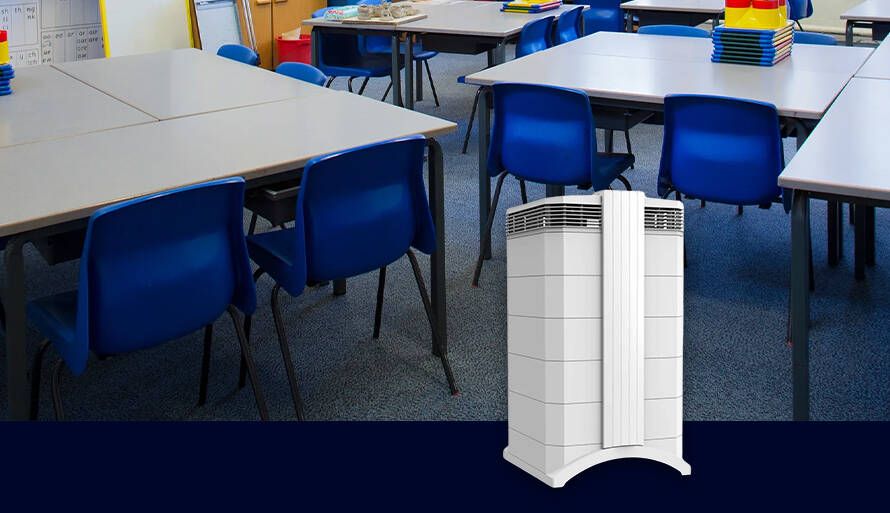The Urban 360 team used direct behaviour observations and intercept surveys to capture the benefits of lowcost and community-led public realm improvements.

This award-winning research was led by the Urban 360 team in collaboration with researchers from the University of Cambridge, a rare ‘before and after’ evaluation of the collaborative improvement of a city centre public space, in Greater Manchester (UK).
The intervention, led by local residents, involved transforming a run-down space associated with anti-social activities, into a space with new seating, diverse planting, imaginative public art and free WiFi.
The three-year study revealed large observed effects for wellbeing behaviours, including social interaction and taking notice of one’s immediate environment. Increases in ‘experienced’, or self-reported wellbeing, were also found, including perceived safety and a sense of belonging.
In order to enhance the quality of findings, the research compared to a matched comparison space where no intervention took place. This helped show that the impact of the intervention was unlikely to be explained by general trends in the wider neighbourhood.
The work provided impartial evidence of public realm success for wellbeing outcomes, as well as what did not work so well. The approach provided opportunity for local people to shape both the intervention and the ‘citizen science’ research aspects.



Funder
EPSRC
Disciplines
Psychology & Environmental Science, Statistics, Town Planning.
Partners
Northern Quarter Greening Group, Manchester City Council, CityCo, BuroHappold.
Project Value
Key Outputs
Research papers, Multiple dissemination materials.
Interested in working with us?
Get in touch with us to discuss your project.



